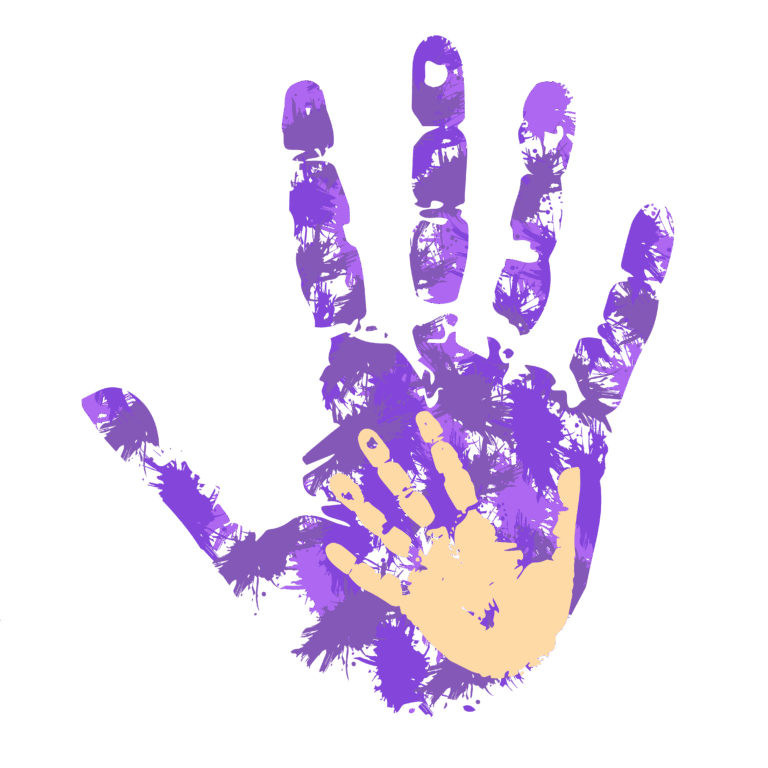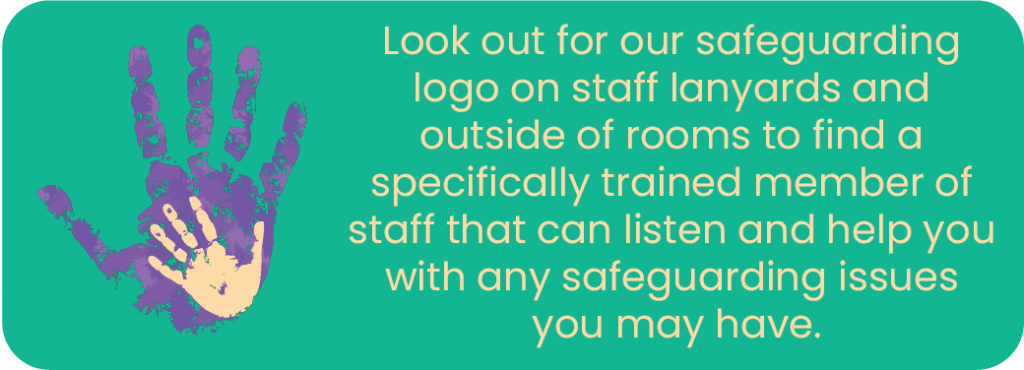Safeguarding & Prevent

Need support?
If you’re worried about your own safety or someone else’s, we’re here to help.
Email: SafeguardingTeam@southend-adult.ac.uk
Find out more:

We’re Listening – Reach Out
We care about your wellbeing
We want you to enjoy your course and your time at Southend Adult Community College. Let your tutor know or a member of the Safeguarding Team know if you are:
- Suffering from mental health problems, such as depression and anxiety.
- Unable to cope.
- Worried you might hurt yourself or someone else.
- At risk of becoming homeless.
- Concerned about managing your money.
What does safeguarding mean?
Safeguarding involves:
Promoting your health and development
Keeping you safe and well cared for
Helping you achieve the best life opportunities
Protecting you from abuse and neglect
Preventing bullying, harassment, and harm
Everyone has the right to live free from violence, abuse, and mistreatment. At SACC, we work hard to ensure that right is protected for every learner, visitor, and member of staff.
Our Commitment
We operate robust safeguarding and health and safety policies to ensure our college is a safe space for all. Our team includes trained safeguarding officers who offer dedicated support and guidance when you need it.
We embrace a whole-college approach to safeguarding. This means:
All staff, volunteers and visitors are expected to uphold our safeguarding principles
Staff are trained regularly in Safeguarding, Child Protection and Prevent duties
We stay up to date with changes in legislation and best practice
We provide clear information to students, parents, carers, contractors and visitors
We take all concerns, allegations or suspicions of abuse seriously and respond quickly and appropriately.
Exploitation
This is when an individual or group uses power of influence to control, coerce or manipulate someone.
This may be through:
- Using things the victim wants or needs.
- Financial gain and debt.
- Violence or threat of violence.
- Sexual threats, acts or coersion.
Coercive Control – is behaviour that is used to harm, punish, or frighten the victim in order to isolate them from support, exploit them and regulate their everyday behaviour.
Coercive control is used in county lines, domestic violence and radicalisation.

Domestic Abuse
If you are worried about someone who you belive may be being abused you must keep the lines of communication open.
- Experiencing or witnessing Domestic Abuse can have a serious long lasting impact.
- Anyone can be a victim regardless of sexual identity, age, ethnicity, gender and social status.
- Domestic Abuse can involve financial, physical, emotional abuse or controlling behaviour (this includes coersive control).
Sexual Harassment
Sexual violence, harassment or bullying is not acceptable and will never be tolerated.
This includes:
- Sexualised comments, jokes, names, gestures or rumours.
- Unwanted or unnecessary physical behaviour.
- Sexualised online behaviour, this includes coercion, or sharing and/or showing indecent images.
Radicalisation and Extremism
This is when someone actively opposes our values, democracy, liberty rule of law and respect and tolerance for all.
Possible signs of radicalisation may include:
- Downloading, viewing or sharing extremist materials.
- Becoming withdrawn and focused on one view of the world.
- Becoming increasingly unaccepting of other people’s opinions.
- A change in appearance and becoming isolated from family and friends
How can we prevent radicalisation and extremism?
Fact checking information – look at a variety of different viewpoints and sources. Just because it is on the internet does not mean that its true.
Speaking out – If you believe someone may be attempting to influence or radicalise you, it’s important to speak with a member of our safeguarding team. We are here to support you and ensure you receive the appropriate guidance every step of the way
Staying Safe Online
Online safety has become one of the most significant safeguarding concerns in recent years due to the growing use of social media, the internet, and other digital platforms.
- Never share personal details or photos online that can be used to identify you.
- Never share your passwords and be sure to change them regularly.
- Check your privacy settings on social media sites. Be cautious, people can be lying about their age or who they are online.
- Be careful of online scams. Check email addresses or phone numbers carefully.
- Never create, share or send sexually explicit messages, images or videos.
- Always report offensive materials/ messages to the college, the website or to the social media platform immediately.